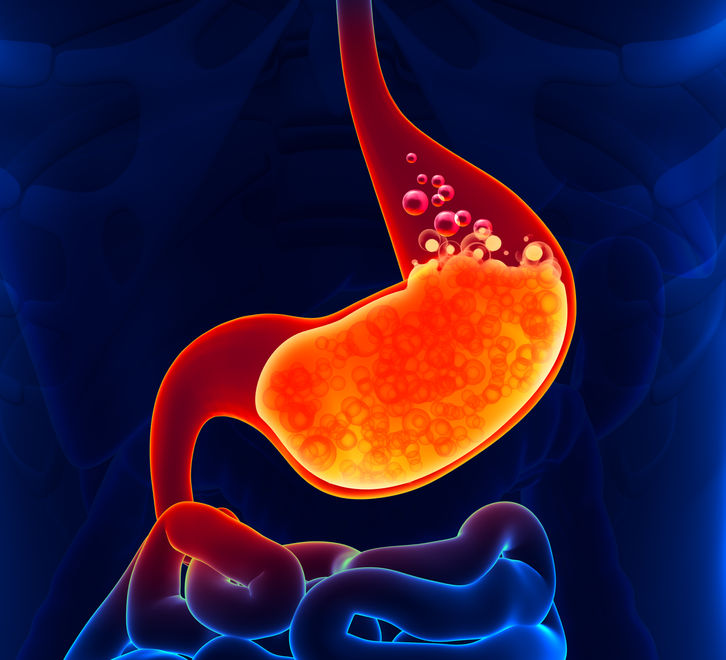Digestive enzymes with hydrochloric acid aid in breaking down food and improving nutrient absorption. They support overall digestive health and function.
Digestive enzymes and hydrochloric acid play crucial roles in the digestive process. Digestive enzymes break down macronutrients like proteins, fats, and carbohydrates into smaller molecules for absorption. Hydrochloric acid, produced in the stomach, maintains an acidic environment that activates these enzymes and kills harmful bacteria.
Together, they enhance nutrient absorption and prevent digestive discomfort. A lack of digestive enzymes or hydrochloric acid can lead to bloating, indigestion, and nutrient deficiencies. Supplements containing both can help individuals with digestive issues. Always consult a healthcare provider before starting any new supplement regimen to ensure it suits your specific needs.
Importance Of Digestive Enzymes
Digestive enzymes are vital for breaking down food. They help the body absorb nutrients. Without them, digestion would be slow and inefficient.
Role In Digestion
Digestive enzymes break down proteins, fats, and carbohydrates. They make nutrients easier for the body to absorb. Enzymes work in the stomach and intestines. Hydrochloric acid (HCl) activates these enzymes. HCl also helps break down food particles.
Types Of Enzymes
| Enzyme Type | Function |
|---|---|
| Protease | Breaks down proteins into amino acids |
| Lipase | Breaks down fats into fatty acids |
| Amylase | Breaks down carbohydrates into sugars |
These enzymes are crucial for digestive health. They ensure food is properly digested. Without them, nutrient absorption would be poor. This can lead to malnutrition and other health issues.
Function Of Hydrochloric Acid
Hydrochloric acid is vital for digestion. It helps break down food in your stomach. This strong acid creates an acidic environment. This helps digestive enzymes work better.
Acid Production
Parietal cells in your stomach lining produce hydrochloric acid. These cells pump acid into your stomach. Gastrin hormone controls this production. It signals the parietal cells when to release acid.
The acid level in your stomach is very low, around pH 1.5 to 3.5. This low pH helps activate pepsin, a key digestive enzyme. Pepsin breaks down proteins into smaller pieces.
Impact On Digestion
Hydrochloric acid has several key functions in digestion:
- Activates digestive enzymes like pepsin.
- Breaks down proteins into smaller peptides.
- Kills harmful bacteria and pathogens in food.
- Facilitates nutrient absorption by breaking down food particles.
The acidic environment also helps in absorbing certain minerals. For example, calcium and iron need an acidic environment to be absorbed well.
| Function | Role in Digestion |
|---|---|
| Activating Enzymes | Helps pepsin break down proteins |
| Killing Bacteria | Prevents infections from harmful pathogens |
| Breaking Down Food | Makes nutrients easier to absorb |
Without enough hydrochloric acid, your digestion suffers. Food may not break down properly. Nutrient absorption can decrease, leading to deficiencies.
Digestive Enzymes And Gut Health
Digestive enzymes with hydrochloric acid play a vital role in gut health. These enzymes help break down food into nutrients. Hydrochloric acid supports this process by maintaining an acidic environment in the stomach. This combination ensures that our bodies absorb nutrients efficiently.
Enhancing Nutrient Absorption
Digestive enzymes break down proteins, fats, and carbs into smaller pieces. This makes it easier for the body to absorb these nutrients. Hydrochloric acid helps by breaking down tough food fibers. Together, they ensure that the body gets the most from the food we eat.
Here is how they work:
- Protease: Breaks down proteins into amino acids.
- Lipase: Breaks down fats into fatty acids.
- Amylase: Breaks down carbohydrates into sugars.
Reducing Digestive Issues
Using digestive enzymes can reduce common digestive problems. Bloating, gas, and indigestion are often due to poor digestion. These enzymes help break down food more completely. This reduces the chance of food fermenting in the gut and causing discomfort.
Hydrochloric acid also kills harmful bacteria in the stomach. This prevents infections and keeps the digestive system healthy. A balanced gut environment reduces the risk of digestive disorders.
Combining Enzymes With Hydrochloric Acid
Combining digestive enzymes with hydrochloric acid can greatly enhance digestion. This duo works synergistically to break down food effectively. Let’s explore the benefits and optimal dosages.
Synergistic Effects
Digestive enzymes and hydrochloric acid create powerful digestive support. Enzymes break down proteins, fats, and carbohydrates. Hydrochloric acid helps enzymes work better by providing an acidic environment.
Together, they ensure food is fully digested. This combination reduces bloating, gas, and discomfort. It also promotes nutrient absorption, improving overall health.
Optimal Dosages
Finding the right dose is key for best results. Below is a table for general guidelines.
| Supplement | Recommended Dosage |
|---|---|
| Digestive Enzymes | 1-2 capsules before meals |
| Hydrochloric Acid (HCl) | 1 capsule after meals |
Consult a healthcare provider for personalized advice. Individual needs may vary based on health status.
Start with low doses to assess tolerance. Increase gradually for better effects.
Combining enzymes with hydrochloric acid can transform your digestive health.
Natural Sources Of Digestive Enzymes
Understanding the natural sources of digestive enzymes can greatly enhance your digestion. These enzymes help break down food, making nutrients more accessible. Let’s explore some of these sources.
Fruits And Vegetables
Fruits and vegetables are rich in digestive enzymes. They aid in breaking down food.
- Pineapple: Contains bromelain, which helps digest proteins.
- Papaya: Rich in papain, another enzyme that breaks down proteins.
- Mango: Contains amylase, which helps digest carbohydrates.
- Banana: Offers amylase and maltase, aiding carbohydrate digestion.
- Avocado: Has lipase, which helps break down fats.
Fermented Foods
Fermented foods are excellent sources of digestive enzymes. They also promote gut health.
| Food | Enzyme | Benefits |
|---|---|---|
| Yogurt | Lactase | Breaks down lactose in dairy. |
| Kefir | Protease, Lipase | Aids in protein and fat digestion. |
| Sauerkraut | Various | Improves overall digestion. |
| Miso | Protease, Amylase | Enhances protein and carbohydrate breakdown. |
| Kimchi | Various | Supports gut health and digestion. |
Supplementing Enzymes And Hcl
Digestive enzymes and hydrochloric acid (HCl) play crucial roles in digestion. Enzymes break down food, while HCl aids in protein digestion and nutrient absorption. Supplementing these can enhance digestion, improve nutrient uptake, and reduce bloating.
Choosing The Right Supplement
Picking the right supplement can make a big difference. Here are some key points to consider:
- Enzyme Types: Look for a blend of protease, lipase, and amylase.
- HCl Content: Ensure it contains betaine HCl for effective digestion.
- Quality: Choose products from reputable brands with positive reviews.
- Allergens: Check for any potential allergens like gluten or soy.
- Certifications: Look for supplements that are GMP certified.
| Criteria | Details |
|---|---|
| Enzyme Types | Protease, Lipase, Amylase |
| HCl Content | Betaine HCl |
| Quality | Reputable brands, positive reviews |
| Allergens | Check for gluten, soy |
| Certifications | GMP certified |
Potential Side Effects
While supplements can be beneficial, they can also cause side effects. Here are some common ones:
- Stomach Pain: Some people may experience stomach discomfort.
- Heartburn: Excess HCl can lead to heartburn.
- Allergic Reactions: Always check the ingredient list for allergens.
- Nausea: This can occur if taken on an empty stomach.
- Diarrhea: Overconsumption can lead to loose stools.
Always consult a healthcare provider before starting a new supplement. This is crucial for safety and effectiveness.
Lifestyle Factors For Gut Health
Gut health is vital for overall wellness. Digestive enzymes with hydrochloric acid play a crucial role. Your lifestyle choices can either support or harm your gut. Learn how dietary choices and stress management can improve your digestive health.
Dietary Choices
Your diet has a huge impact on your gut health. Eating the right foods can boost your digestion.
- Include plenty of fiber-rich foods like fruits and vegetables.
- Eat fermented foods such as yogurt and kimchi for probiotics.
- Drink plenty of water to aid digestion.
- Avoid processed foods that can harm your gut.
Here’s a simple table to guide your food choices:
| Healthy Foods | Unhealthy Foods |
|---|---|
| Fruits | Fried Foods |
| Vegetables | Sugary Snacks |
| Whole Grains | Processed Meats |
| Lean Proteins | Soda |
Stress Management
Stress can negatively affect your gut health. Managing stress is essential.
- Practice deep breathing exercises to calm your mind.
- Engage in regular physical activity to reduce stress levels.
- Ensure you get enough sleep every night.
- Try relaxation techniques such as yoga and meditation.
Consistent stress management can improve your overall gut health.
Common Myths And Misconceptions
Digestive enzymes with hydrochloric acid have gained popularity for their health benefits. Yet, there are many myths and misconceptions about their use and effectiveness. This section addresses these myths and provides factual information.
Myth Vs. Reality
Myth: Digestive enzymes with hydrochloric acid can harm your stomach.
Reality: These enzymes help to break down food and aid digestion. They can actually improve stomach health by balancing acid levels.
Myth: You don’t need digestive enzymes if you eat a healthy diet.
Reality: Even with a healthy diet, some people need extra digestive help. Digestive enzymes can assist in the breakdown of complex foods and enhance nutrient absorption.
Myth: All digestive enzyme supplements are the same.
Reality: Not all supplements are created equal. Quality and potency can vary widely. Always choose reputable brands with proven efficacy.
Scientific Evidence
Scientific studies support the benefits of digestive enzymes with hydrochloric acid. According to research, these enzymes can:
- Improve nutrient absorption: Enzymes help your body absorb vitamins and minerals better.
- Reduce bloating and gas: Proper digestion reduces uncomfortable symptoms.
- Support gut health: Balanced acid levels promote a healthy digestive system.
Here is a table summarizing some key benefits backed by science:
| Benefit | Scientific Evidence |
|---|---|
| Improved Digestion | Studies show better breakdown of food and nutrient absorption. |
| Reduced Bloating | Clinical trials indicate a decrease in bloating and gas. |
| Enhanced Gut Health | Research supports balanced acid levels and healthier gut flora. |
Understanding the facts can help make informed decisions about using digestive enzymes with hydrochloric acid. It is always best to consult with healthcare professionals for personalized advice.
Frequently Asked Questions
Which Digestive Enzyme Is Activated By Hydrochloric Acid?
Pepsin is the digestive enzyme activated by hydrochloric acid in the stomach. It breaks down proteins into smaller peptides.
Can I Take Hcl With Digestive Enzymes?
Yes, you can take HCl with digestive enzymes. Combining them may improve digestion and nutrient absorption. Always consult your healthcare provider before starting any new supplement.
Is Hydrochloric Acid Good For Digestion?
Yes, hydrochloric acid is good for digestion. It helps break down food in the stomach and absorbs nutrients.
What Does Hydrochloric Acid Do To Enzymes?
Hydrochloric acid denatures enzymes, altering their structure. This change inactivates the enzymes, preventing them from functioning properly.
Conclusion
Digestive enzymes with hydrochloric acid can significantly improve gut health. They aid in better nutrient absorption and reduce digestive issues. Incorporating them into your routine may enhance overall wellness. Always consult a healthcare professional before starting any new supplement. Optimize your digestion naturally with these powerful enzymes.





















